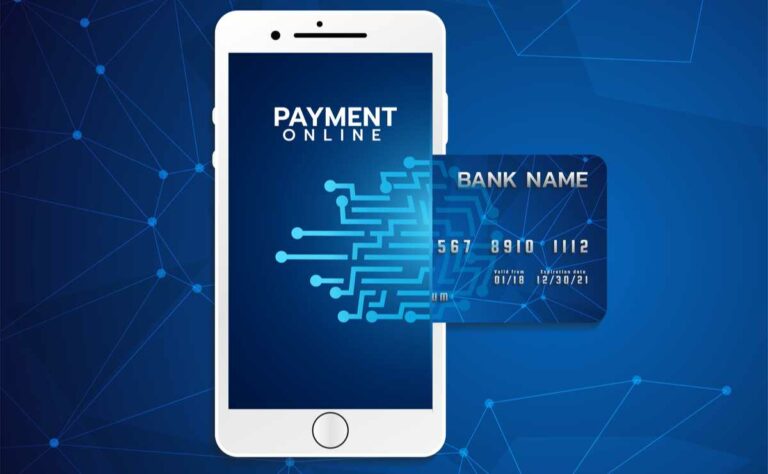Loan sharks: Meaning, examples, how to identify and avoid
Considering borrowing money from a loan shark or other non-bank lender? Here are the basics that you need to know.

Loan sharks offer easy loans to unsuspecting borrowers, who are later shocked by their high-interest rates and unethical debt-recovery methods.
A loan shark can either be a company or an individual. They operate without a license and are not regulated in any way by the authorities.
Most loan sharks are either criminals or affiliated with criminal organizations. They offer to lend money without much paperwork, checks, or collateral but turn out to threaten their borrowers to recover the money.
This post presents you with everything you need to know about loan sharks to stay safe, including how to identify and avoid them.
What Is A Loan Shark?
A loan shark is an illegal money lender that is neither authorized to lend money nor regulated by a financial service regulatory body.
Loan sharks target victims with bad credit or who have issues with borrowing money through the proper channels. They charge high-interest rates and rarely require collateral for the loans.
The downside of borrowing from loan sharks is their willingness to harass you and make your life a living hell when you fall behind with the payment. Some loan sharks can even pressure you into taking out a new loan to pay off the old debt.
How To Identify Loan Sharks
Loan sharks can use different methods to trap a potential victim into borrowing money from them. The following are common traits that should help you identify a potential loan shark:
- Cash Loans – If a lender offers you a loan in cash, then this lender could be a loan shark. Keep in mind, however, that while traditional loan sharks worked mostly cash-based, there are many online loan sharks today that wire the loaned money.
- No Paperwork – Lending is a highly-regulated activity in most countries and part of the requirements is that a lender provides paperwork that details the terms of the loan under the law. Loan sharks tend to forgo all formal paperwork, including issuing you receipts of your payments.
- No Background Checks – All lenders conduct a background check on a loan application to determine the applicant’s creditworthiness. Loan sharks will not run such checks or conduct other assessments of your creditworthiness.
- Improper or Confusing Loan Terms – Every licensed and regulated lender will ensure that you understand the loan terms, interest payments, duration, total debt, and other necessary information. So, once you find such important information about a loan offer missing or confusing, then it’s probably a loan shark.
How Loan Sharks Recover Money
Loan sharks are illegal lenders, and this means that they lack the legal authority to recover their money through legal means. As a result, loan sharks resort to a variety of techniques to try and pressure any borrower that falls behind on payments.
The following are possible measures that loan sharks can apply to recover their money:
- Sending threats of violence to the defaulter
- Using physical intimidation
- Blackmailing the defaulter
- Stalking and harassment
- Complaining to your employer
- Sending an email to all your contacts
- Taking possession of the defaulter’s property by force
- Offering additional loans to pay off the debt
- Increasing the owed amount without your permission
- Asking for sexual favors
- Defaming and disgracing the defaulter
- Posting your information on social media
- Vandalizing your car or home with graffiti
- Kidnapping your family members
Loan Sharks Vs Predatory Lenders
A loan shark is a type of predatory lender. A predatory lender focuses on exploiting victims using fraudulent, unfair, or abusive methods.
All predatory lenders try to trap their borrowers in debt and extract as much profit as possible thereby. They do this by initially demanding high-interest charges on the loans, which are often difficult for most victims to pay in such short payback periods.
Then once the applicant defaults on the loan, the predatory lender attacks the defaulter with exploitative methods. Loan sharks are predatory lenders that resort to illegal means.
Loan Sharks Vs Payday Lenders
Loan sharks are identical to payday lenders because they are both predatory lenders. Both charge high-interest rates, but loan sharks typically charge higher.
While loan sharks are illegal and have to resort to illegal means to recover their money, payday lenders are often legal businesses that have been granted exceptions by their local governments, giving them the ability to lend money at high-interest rates.
Payday lenders have to abide by the law though. So, they will request personal information and perform a credit check before lending money.
Loan Shark Examples
Loan sharks are everywhere; they are in all countries and continents. Here are a few experiences of different people with loan sharks from around the world.
- The 46-year-old Indian businessman Kamlesh Patel was killed by a loan shark after numerous threats and intimidation. The victim led a double life and hid his debt from his wife and everyone else. On the outside, he remained successful, but he was deeply indebted to a loan shark that eventually killed him on his birthday. – source
- A special task force helped a woman to recover her flat that was taken over by a loan shark she got indebted to, after borrowing money to treat her son. – source
- A 45-year-old Indian lab technician committed suicide after borrowing money to build his house and paying back the loan with interest, but the lender continued to threaten him. – source
- Back in 1983, a Japanese woman’s $200 loan easily ballooned to $40,000. The country also recorded 185 suicides connected to debt in 1982, with over 7,000 leaving their families to evade loan sharks. – source
- Two South African loan sharks were found guilty and sentenced for possessing over 500 bank and ID cards of their clients, which they seized to guarantee monthly payments after the clients borrowed from them. – source
- A 41-year-old was shot by a loan shark on his way to work. The man borrowed 600 South African Rand (about $35) and although he paid it back, the loan shark demanded another R800 for interest, which he refused. – source
- Nigerian loan sharks threaten death and violence on the phone even before the payment is due. They will also smear your reputation when you don’t pay up. – source
- A 50-year-old Malaysian has to pay off his son’s debt after his son’s friend used his ID to borrow money from a loan shark. The family now lives in fear and the son has gone missing. – source
How To Avoid Loan Sharks
Avoiding the horrors of dealing with a loan shark is possible if you follow some basic rules and apply common sense in your judgments.
Here are the major rules to keep in mind:
- Try to get in the habit of saving money to reduce or avoid financial emergencies.
- Never accept a loan from a non-licensed company.
- Never accept a cash loan from a lender.
- Borrowing from friends and family or credit unions is better.
How To Survive A Loan Shark
If you happen to get indebted to a loan shark, then it’s best to pay what you owe. The reason here is that most loan sharks are involved one way or the other with organized crime, so your security might be on the line.
All the same, you should keep in mind that any lender that harasses you or threatens violence is breaking the law. So, you can always report to the police or regulators.
You should also know that while loan sharks operate without a license, and hence illegally, borrowing money from a loan shark is not illegal or an offense.
This means that you should not be worried about getting into trouble with the law. Simply report any loan shark to your local police if you feel threatened. And depending on where you are, the following institutions can also be of further assistance.
The US: https://www.justice.gov/archives/stopfraud-archive/report-financial-fraud
The UK: https://www.stoploansharks.co.uk/report-a-loan-shark/
South Africa: https://nationalgovernment.co.za/units/view/126/national-credit-regulator-ncr
Philippines: https://www.sec.gov.ph/lending-companies-and-financing-companies-2/complaints/
Digital Loan Sharks
According to this and this report, unscrupulous loan companies operating in Asia and Africa have taken the loan shark business to new levels by leveraging the Internet and social media.
While there are legit companies that offer loans through smartphone apps, these digital loan sharks will advertise instant loans without all the paperwork. So, all you have to do is download their app, apply for a loan, and get approved and paid in just a few minutes.
What many of these digital loan sharks hide from you though, is their outrageously high-interest rates, plus the fact that they will copy your contact lists for possible blackmail down the line.
Once you default on your payment or have issues in any way, then all hell breaks loose. They will call all your contacts, post defamatory messages on your social media pages, send disturbing photos to your Facebook contacts, and torment you with dozens of daily calls.
Conclusion
As this post on loan sharks and how to avoid them comes to a close, it should be obvious to you now that the best way to deal with a loan shark is to stay away from their offers. And if you already took their money and are under threat, then report to the authorities immediately.





